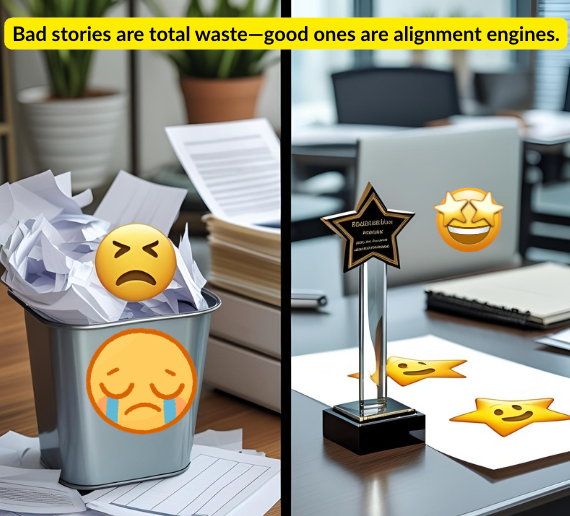How Mobile App Development Is Transforming E-commerce

In recent years, e-commerce has experienced a revolution, and much of the credit goes to the rise of mobile app development. With smartphones becoming the preferred medium for shopping online, businesses are heavily investing in custom mobile application development services to stay competitive. Mobile apps are not just a convenience—they are reshaping the e-commerce landscape, influencing customer behavior, streamlining operations, and creating new revenue streams.
This blog explores how mobile app development is transforming e-commerce, offering insights, strategies, and a mobile app development guide for businesses aiming to thrive in the digital economy.
The Mobile Commerce Boom
Mobile commerce, or m-commerce, has exploded over the last decade. With more than 6.9 billion smartphone users globally, mobile devices are now the primary gateway to online shopping. Consumers prefer apps over websites because of:
-
Better user experiences
-
Faster checkout processes
-
Push notifications and promotions
-
Secure and saved payment options
According to Statista, mobile commerce sales are projected to surpass $3.5 trillion in 2025, contributing over 70% of total e-commerce sales globally. This shift demands that businesses pivot toward mobile-first strategies, powered by advanced app solutions.
Why Mobile Apps Are Essential for E-commerce Success
1. Personalized Shopping Experiences
Mobile apps use customer data—like past purchases, preferences, and location—to offer personalized recommendations. This tailored approach increases the chances of a purchase and enhances brand loyalty. With the right custom mobile application development services, businesses can implement AI-driven features that adapt to user behavior in real time.
2. Improved Customer Engagement
Through push notifications, loyalty programs, and interactive content, mobile apps help maintain a direct line of communication with customers. Unlike emails that may go unread, app notifications capture attention immediately. This increases user engagement and repeat purchases.
3. Seamless Checkout and Payment Integration
One of the main reasons customers abandon carts on websites is a complicated checkout process. Mobile apps solve this by offering one-click purchases, digital wallets, and integrated payment gateways, drastically reducing friction at the point of sale.
4. Offline Accessibility
While websites require internet access, many mobile app features can work offline. Users can browse catalogs, read product descriptions, or even add items to their cart without connectivity. This offline capability increases user convenience and engagement.
Features That Make E-commerce Apps Powerful
To fully harness the benefits of mobile commerce, e-commerce apps must include essential and innovative features:
-
User-friendly Interface (UI/UX)
-
Advanced Search and Filters
-
AI-based Product Recommendations
-
Secure Payment Gateways
-
Order Tracking and Status Updates
-
Customer Support Chatbots
-
Augmented Reality for Virtual Try-Ons
-
Social Media Integration
-
Loyalty Points and Reward Systems
With the help of expert custom mobile application development services, these features can be tailored to meet specific business goals and customer needs.
How Mobile App Development Enhances Business Growth
Better Analytics and Insights
E-commerce mobile apps collect valuable data on user behavior, demographics, and buying patterns. Businesses can analyze this information to refine marketing strategies, improve products, and personalize user experiences.
Higher Conversion Rates
Mobile apps consistently report 3x to 4x higher conversion rates than mobile websites. This is due to improved speed, personalization, and optimized purchasing flows. Investing in a high-performance app significantly boosts sales.
Brand Loyalty and Customer Retention
Apps encourage repeat purchases through:
-
Exclusive in-app deals
-
Personalized communication
-
Gamification (like scratch cards or spin-the-wheel discounts)
These tactics foster loyalty and make customers more likely to return, a crucial advantage in today’s competitive market.
Real-World Examples of E-commerce App Success
Amazon
Amazon’s mobile app is a textbook example of how e-commerce apps should function. It offers intuitive navigation, personalized recommendations, 1-click purchasing, and seamless payment integration. The app drives a large portion of Amazon’s revenue due to its convenience and reliability.
Nike
Nike’s app blends commerce with community. Through exclusive product drops, virtual events, and fitness tracking, Nike connects emotionally with customers. Their app strategy has led to increased digital sales and a stronger customer base.
ASOS
Fashion retailer ASOS uses AI and machine learning in their app to offer fashion recommendations, size suggestions, and style feeds. This personalization has significantly increased their mobile conversion rates.
These examples show how investing in the right custom mobile application development services can fuel exponential business growth.
Mobile App Monetization in E-commerce
Many businesses also explore how to make money from mobile apps, not just through product sales but via multiple revenue streams, such as:
1. In-App Advertising
E-commerce apps can earn through ads from third-party businesses. If user engagement is high, ad space can be lucrative.
2. Subscription Models
Premium access to exclusive collections, early sales, or free shipping can be offered via monthly or yearly subscriptions.
3. Affiliate Marketing
Some e-commerce apps promote products from other brands and earn a commission on every sale through affiliate links.
4. Data Monetization (Ethical and GDPR-Compliant)
With consent, businesses can anonymize and sell behavioral data to research firms or use it for internal improvement and predictive modeling.
Understanding how to make money from mobile apps enables e-commerce businesses to diversify their income while adding value to users.
Challenges in Mobile E-commerce App Development
Despite the benefits, businesses must overcome some challenges when developing e-commerce apps:
-
Security Concerns: Apps must comply with data privacy laws and implement robust security features like encryption and biometrics.
-
Cross-Platform Compatibility: Ensuring that the app performs equally well on iOS and Android is essential.
-
App Store Optimization (ASO): To reach users, the app must be well-optimized with strong titles, descriptions, screenshots, and ratings.
-
Retention Strategies: Downloads don’t guarantee active users. Continuous engagement is key to success.
A reliable mobile app development guide and the right development partner can help overcome these obstacles.
Step-by-Step Mobile App Development Guide for E-commerce Businesses
If you're considering creating an e-commerce app, here’s a brief mobile app development guide to follow:
Step 1: Define Your Goals
Determine what problems your app will solve. Is it about improving user experience, boosting sales, or expanding into new markets?
Step 2: Research Your Audience and Competitors
Understand user preferences, pain points, and what competitors offer. This helps shape your unique selling proposition (USP).
Step 3: Choose the Right Technology Stack
Decide between native, hybrid, or cross-platform development depending on budget, performance needs, and target users.
Step 4: Design Wireframes and UI/UX
Work with your custom mobile application development services provider to create intuitive designs focused on ease of use and visual appeal.
Step 5: Develop Core Features
Start with MVP (Minimum Viable Product) including basic features like product browsing, search, cart, and payments.
Step 6: Test Extensively
Perform beta testing, A/B testing, and device compatibility checks to ensure smooth functionality.
Step 7: Launch and Market the App
Use digital marketing, influencer partnerships, and ASO to reach your target audience.
Step 8: Analyze and Improve
Collect user feedback and data analytics to continuously update and enhance the app.
Why Partner with Custom Mobile Application Development Services?
Choosing a professional custom mobile application development services provider ensures that your app:
-
Meets industry standards
-
Aligns with your brand identity
-
Offers seamless integration with your e-commerce platform
-
Stays scalable for future growth
Whether you're launching a startup or upgrading an existing platform, a specialized team ensures success from design to deployment and beyond.
Final Thoughts
Mobile app development is not just influencing e-commerce—it is redefining it. With the increasing reliance on smartphones and the expectations of modern consumers, mobile apps have become the backbone of successful digital retail strategies.
Whether you're looking to improve user experience, increase sales, or explore how to make money from mobile apps, the right development approach can unlock endless possibilities.
At Pixel Genesys, we offer end-to-end custom mobile application development services tailored to the unique needs of e-commerce brands. From idea to execution, our team supports businesses in navigating the mobile-first world with confidence.
If you're ready to ride the wave of mobile commerce, start with a reliable mobile app development guide and the right technology partner—and watch your e-commerce brand thrive.

































































































































































